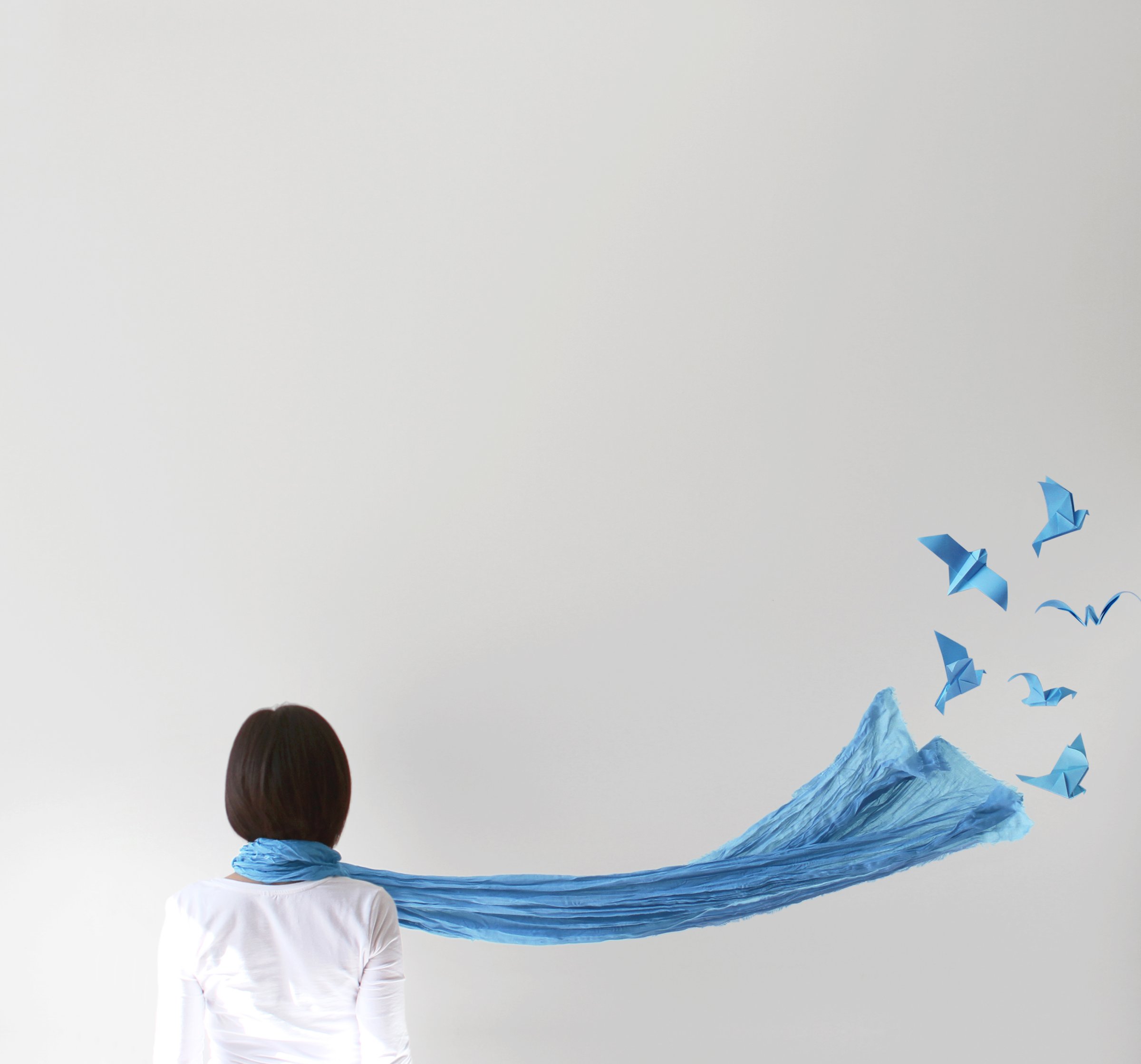
The first time I had a panic attack, I was 8 years old.
My parents were divorcing, and I was at my dad’s brand-new Upper East Side apartment for the weekend. By eight o’clock on that first night, I was already convinced I was going to die. Specifically, that I had lethally poisoned myself while loading his dishwasher. And by poisoned, I mean that I could have theoretically transferred a trace amount of dishwashing detergent from my hand into my mouth.
“In the case of accidental poisoning,” the label on the box of detergent warned ominously. “Drink several glasses of water and call poison control.”
I can remember choking down so much water that my stomach hurt, then crying on the kitchen floor afraid to tell my dad that I was pretty sure it was time for our last goodbyes.
In the years since, my anxiety has sometimes gotten better. Sometimes. Other times, it has gotten a whole lot worse. I did evolve past a fear of dishwashing powder to other assorted phobias—an inability to eat in restaurants that lasted most of my senior year in college, an aversion to subways for several months.
Once upon a time, I used huge amounts of alcohol to cure my anxiety. Weirdly, this works, but only if by “cure,” you mean “black out.” I now use healthier approaches: Talk therapy and cognitive behavioral therapy. Regular meditation and occasional medication. Copious amounts of exercise.
All of it works some of the time. None of it works all of the time.
But it wasn’t until I had my daughter that I came to see the whole thing differently.
People say becoming a parent changes everything. And the ground does feel weightier, the world suddenly more enormous and profound. But, sadly, adding a child to the mix does nothing to fix your broken bits. Instead, you end up a way more tired version of the same messed-up person you always were. Or in my case: The same anxious person. And even more so once I had kids. Because now I was also anxious about being anxious. The last thing I wanted to do was ruin them.
And wouldn’t you know: One of them turned out anxious anyway.
Of course, I blamed myself. It was how nervous I’d been when I was pregnant. It was my lousy genes. For sure, it is one seriously dubious enterprise trying to reassure a child in the midst of your own full-blown panic attack. But pull it together I did. We tackled my daughter’s sudden, fierce phobias—noises, fire alarms, the end of the world—on multiple fronts. Handily, I was at least well versed in a wide range of coping techniques.
Read more: This Woman Took Selfies Before and After Her Panic Attack
In the end, there was one tactic that had the most lasting effect: Helping my daughter see her anxiety as one crooked offshoot of her otherwise awesome personality. To be clear: Her anxiety itself is not awesome. And I would never betray my daughter’s trust by trying to convince her that it is. Anxiety is an onerous, exasperating life suck.
But here’s the thing: Much of what makes my daughter so special—her emotional sensitivity and acute empathy—predispose her to anxiety. And those underlying qualities are exceedingly useful. They are incredible, as a matter of fact. My daughter’s emotional dexterity makes her socially adept and exceptionally kind and, at times, crazy, crazy wise.
And so I have tried to show her that her anxiety is really just the sum of all these fabulous parts—taken way the hell too far. And in doing so, I have realized something important: What is true of my daughter’s anxiety is also true of my own.
It sucks, but maybe 99.8% of the time. Because that same thin shell that makes me burn so easily also allows me to slide into my daughter’s skin so seamlessly. It can make me cry hard, but it lets me laugh harder. It lets me spend my days doing what I love: Making up stories.
My anxiety allows me to experience the world as this insanely vibrant and magical place. And that may be a terrifying gift, but I choose to see it as a gift nonetheless. I am going to keep on reminding my daughter of that. I’m going to keep telling her that if you squint your eyes and look close enough, sometimes it’s even kind of beautiful, too.
Kimberly McCreight is the author of Reconstructing Amelia and Where They Found Her. Her new novel, THE OUTLIERS, is about anxiety, female intuition and emotional intelligence and was published May 3 by HarperCollins.
More Must-Reads from TIME
- Cybersecurity Experts Are Sounding the Alarm on DOGE
- Meet the 2025 Women of the Year
- The Harsh Truth About Disability Inclusion
- Why Do More Young Adults Have Cancer?
- Colman Domingo Leads With Radical Love
- How to Get Better at Doing Things Alone
- Michelle Zauner Stares Down the Darkness
Contact us at letters@time.com